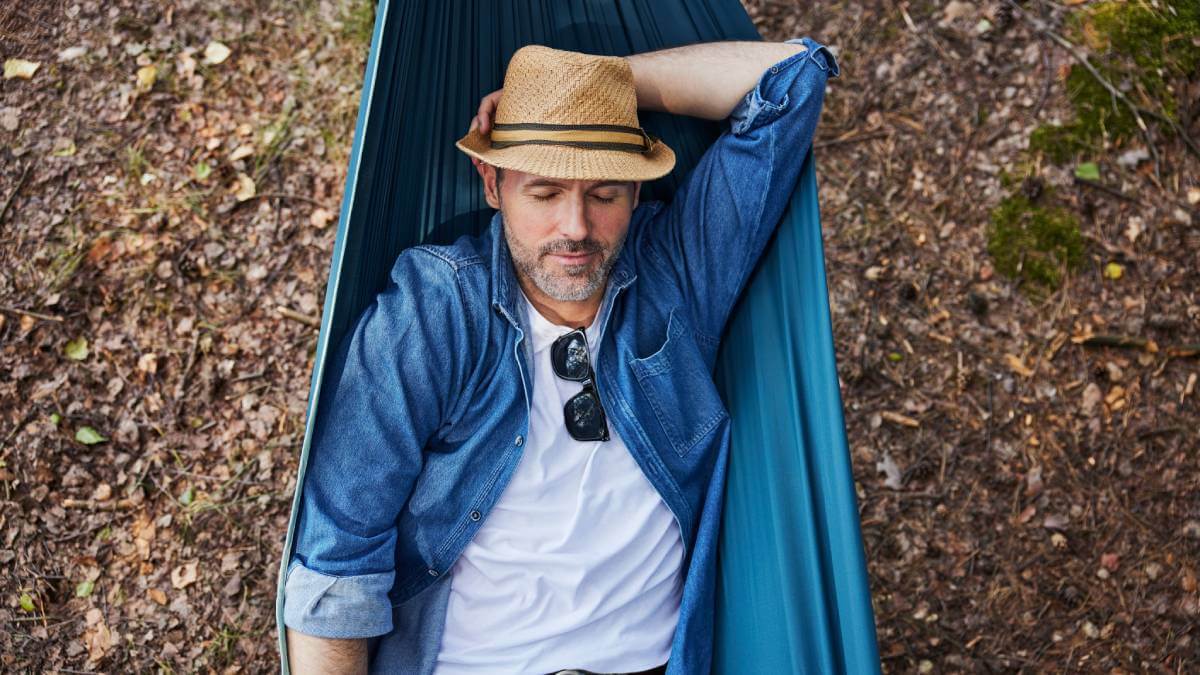It’s a truth universally acknowledged that a good sleep routine is essential to maintaining overall health and wellbeing, especially when you are travelling.
But with interrupted sleep schedules, time zone changes and resulting jet lag and strange beds and bedrooms, a good night’s sleep while on holiday is often hard to come by.
There is where a good nap comes in handy.
Call it what you want: power nap, disco nap or nanna nap, a teensy day sleep is a handy boost whether it’s to build some stamina before an evening drinking red wine by the Mediterranean or heading out on a long drive.
But how to maximise your nap?
Timing is everything
To leverage the positive benefits and circumvent the sleep inertia – the grogginess felt after a long nap – a power nap of 15-30 minutes is optimal. Longer than that, and you risk entering a heavy sleep cycle, which might leave you more tired than you were earlier.
There are some easy steps you can use to make your nap more effective.
If you are one of those who nap regularly, try to nap at the same time each day. Your biological clock will help you fall asleep faster at this consistent nap time.
If you don’t nap regularly, try and find your ‘sweet spot’. For many it’s the period between 2-4pm, as it’s not too early and not too late to influence your night sleep.
Make sure you are neither hungry nor too full as both can disturb your ability to sleep.
And pay attention to the temperature. It’s a bit like Goldilocks, it can’t be too hot or too cold or you won’t settle.
Take a breath
Try deep breathing or relaxation exercises before you nap or listen to soft music or white noise.
It also helps to nap in a quiet, dark room with the curtains drawn and a sleep mask if you wear one.
Set an alarm for no longer than 30 minutes, so you don’t sleep for too long. If you enter a deep sleep pattern it may be hard to wake up, or you may wake up feeling groggier than before.
Just as there are guidelines to enhance the potential benefits of napping, there is also some caution required.
Ensure your safety before taking a nap, especially in places like a parked car.
It’s also important to allow yourself enough time to be fully alert again before starting any potentially hazardous activities.
So get up and walk around a bit before getting stuck back into life.
Surprise trick
And here’s an interesting tip: some experts recommend a combination of a quick cup of coffee or caffeinated drink followed up with a 15-minute nap to provide a drowsy traveller with a much-needed kick to stay alert.
This is because the caffeine generally takes around 30 minutes to kick in, providing the dual benefits of rest and stimulation when you wake.
However, napping during the day should never compromise your night’s sleep.
Extended periods of daytime sleep or very late naps may hamper your ability to fall asleep at your usual bedtime. Your priority should always be to ensure quality night-time sleep over daytime naps.
People struggling with sleep disorders or having difficulty sleeping at night might find that napping worsens their situation.
Do you enjoy an afternoon nap? What’s your secret to a good nap? Why not share your tips in the comments section below?
Read also: Destinations to spend your life savings on

